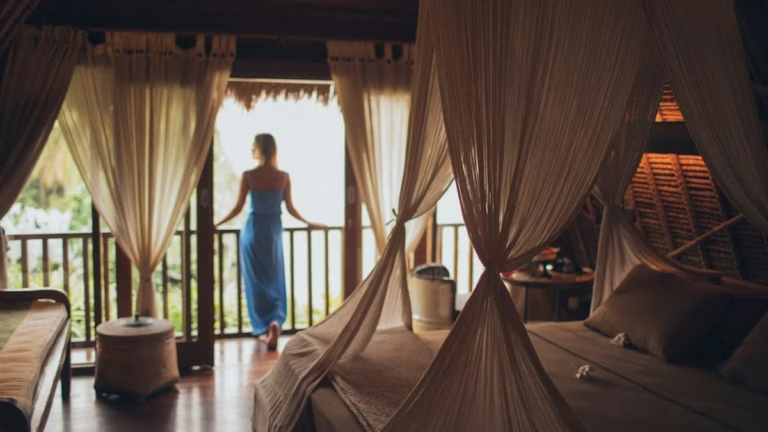Sleep Soundly: Optimizing Your Sleep Environment for Deeper Rest in Colder Months
Introduction: Embracing the Cozy Slumber of Winter
As the days grow shorter and the nights grow longer, the allure of a warm, inviting bed becomes even stronger. The colder months can be a wonderful time for rest and rejuvenation, but they can also present unique challenges to achieving quality sleep. From the dry air to the early darkness, several factors can disrupt your sleep cycle. But don’t despair! By optimizing your sleep environment, you can transform your bedroom into a sanctuary of slumber and enjoy deeper, more restorative rest throughout the winter season.
Creating a Warm and Comfortable Sleep Space
Temperature plays a crucial role in sleep quality. When you sleep, your body temperature naturally decreases. A cool, but not cold, room helps facilitate this process. However, in winter, maintaining the right balance is key.
Adjusting Your Thermostat
The ideal temperature for sleep is generally between 60 and 67 degrees Fahrenheit (15-19 degrees Celsius). Experiment to find what works best for you. Consider a programmable thermostat to automatically adjust the temperature at night, ensuring your room is cool enough for sleep without being uncomfortably cold when you wake up.
Layering Bedding for Optimal Warmth
Instead of relying on one thick blanket, opt for layers of bedding. This allows you to easily adjust your warmth level throughout the night. Start with a breathable base layer of sheets, followed by a quilt or duvet, and then add a throw blanket for extra warmth when needed. Materials like flannel or fleece are excellent choices for winter bedding.
Investing in a Quality Mattress Topper
A mattress topper can add an extra layer of comfort and insulation to your bed. Consider a memory foam or down alternative topper for added warmth and support. This can be especially helpful if you have an older mattress that doesn’t provide adequate insulation.
Combating Dry Air and Maintaining Humidity
Winter air is often dry, which can lead to dry skin, a scratchy throat, and disrupted sleep. Maintaining adequate humidity in your bedroom is essential for a comfortable sleep environment.
Using a Humidifier
A humidifier adds moisture to the air, helping to alleviate dryness and improve sleep quality. Place a humidifier in your bedroom and run it throughout the night. Clean it regularly to prevent the growth of mold and bacteria.
Hydrating Before Bed
Drink plenty of water throughout the day, but avoid excessive fluids right before bed to minimize nighttime trips to the bathroom. A small glass of water can help keep your throat and nasal passages moist.
Minimizing Light and Noise
Darkness and quiet are essential for optimal sleep. In winter, the early darkness can be a benefit, but it’s still important to minimize light and noise distractions.
Blackout Curtains or Blinds
Invest in blackout curtains or blinds to block out any external light sources, such as streetlights or car headlights. Even a small amount of light can disrupt your sleep cycle.
Earplugs or White Noise Machine
If you live in a noisy environment, consider using earplugs or a white noise machine to mask distracting sounds. A white noise machine can create a consistent, soothing sound that helps you fall asleep and stay asleep.
Limit Screen Time Before Bed
The blue light emitted from electronic devices can interfere with melatonin production, making it harder to fall asleep. Avoid using smartphones, tablets, and computers for at least an hour before bed.
Establishing a Relaxing Bedtime Routine
A consistent bedtime routine can signal to your body that it’s time to sleep. This is especially important during the winter months when seasonal changes can disrupt your natural sleep-wake cycle.
Warm Bath or Shower
A warm bath or shower before bed can help relax your muscles and lower your body temperature, promoting sleepiness.
Reading a Book
Instead of watching TV or scrolling through social media, try reading a book before bed. Choose something calming and enjoyable to help you unwind.
Herbal Tea
A cup of herbal tea, such as chamomile or lavender, can help promote relaxation and sleep. Avoid caffeinated beverages in the evening.
Conclusion: A Winter’s Rest Worth Pursuing
Optimizing your sleep environment for the colder months is an investment in your overall health and well-being. By creating a warm, comfortable, and relaxing sleep space, you can combat the challenges of winter and enjoy deeper, more restorative sleep. Experiment with these tips to find what works best for you and transform your bedroom into a sanctuary of slumber. Sweet dreams!






